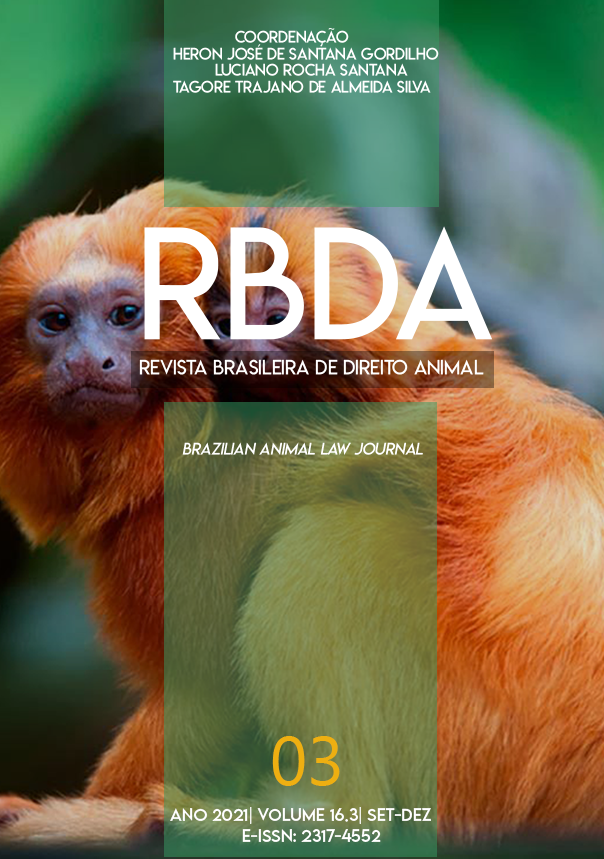THE INCREASE OF PUNISHMENT FOR ILL-TREATMENT OF DOGS AND CATS AND THE PERSISTENCE OF THE ANTHROPOCENTRIST PARADIGM IN BRAZILIAN LEGISLATION
DOI:
https://doi.org/10.9771/rbda.v16i3.46128Keywords:
Crime, Especismo, Maus tratos, SenciênciaAbstract
The Federal Law 14.064/2020 altered the Article 32 of the Environmental Crimes Law, which refers to the ill-treatment of animals, in order to increase the punishment when the act is committed against dogs and cats, prescribing 2 to 5 years of imprisonment, in addition to a fine and prohibition of custody. This provision treats equally sentient animals differently, overvaluing the sentience and suffering in dogs and cats in spite of the same characteristics on other animals, such as vertebrates and even octopuses. Therefore, the aim is to introduce an analysis of the arbitrariness of the different legal consideration between dogs and cats and the other animals, especially the group of the sentients, regarding to criminal protection against ill-treatment. The research is bibliographical and in what comes to the analysis of what is hidden in the norm it is exploratory, using the phenomenological method, to achieve the expected result, which is to unveil the meaning and paradigm that underlie the quoted legislative reform, exposing the difference in legal treatment among animals, its arbitrariness and what lies behind it.
Downloads
Downloads
Published
How to Cite
Issue
Section
License
Copyright (c) 2022 Brazilian Animal Law Journal

This work is licensed under a Creative Commons Attribution-NonCommercial 4.0 International License.
1. Autores mantém os direitos autorais e concedem à revista o direito de primeira publicação, com o trabalho simultaneamente licenciado sob a Licença Creative Commons Atribuição 4.0 Internacional que permite o compartilhamentodo trabalho com reconhecimento da autoria e publicação inicial nesta revista.
2. Autores têm autorização para assumir contratos adicionais separadamente, para distribuição não-exclusiva da versão do trabalho publicada nesta revista (ex.: publicar em repositório institucional ou como capítulo de livro), com reconhecimento de autoria e publicação inicial nesta revista.
3. Autores têm permissão e são estimulados a publicar e distribuir seu trabalho online (ex.: em repositórios institucionais ou na sua página pessoal) a qualquer ponto antes ou durante o processo editorial, já que isso pode gerar alterações produtivas, bem como aumentar o impacto e a citação do trabalho publicado.












